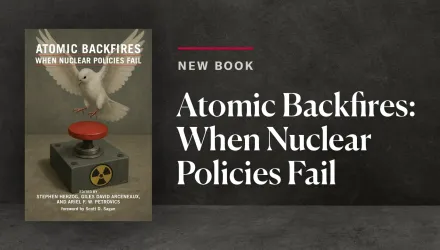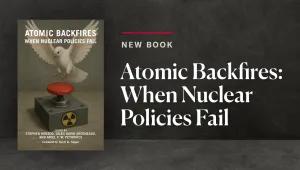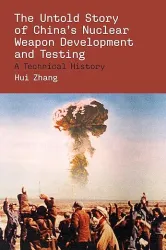The latest round of six-party talks had lightened up the hope of implementing North Korea's denuclearization promise this September. However, the failure to negotiate either the dismantlement or the rewards in an "action for action" manner dampened that hope. Future negotiations will be tougher. The success of achieving a nuclear free Korean Peninsula depends on solid confidence building in the Washington-Pyongyang-Beijing triangle.
"Lack of trust" can easily be cited as the impasse on the resolution of three key issues: 1) the full verification of North Korea's nuclear program, 2) the provision of light-water reactors to Pyongyang, and 3) the sequence of rewards or incentives for accomplishing these tasks. Despite Beijing's mediation efforts, adversarial gestures between Pyongyang and Washington in any of these areas jeopardize recent achievements and the future success of the negotiation.
Mistrust has already been to blame for the stalemate of negotiations. The belief of Washington and Pyongyang that the other cheated on the 1994 framework agreement had made them reluctant to strike a deal with each other. Washington's insistence that Pyongyang's uranium enrichment program is the core problem constituted a tug-of-war with Pyongyang's denial of such a program. Washington's suspicion of Pyongyang's ulterior motives makes it hard to satisfy Pyongyang's request for a peaceful nuclear energy program. On the other hand, Pyongyang has yet to be assured of Washington's non-aggression allegation before totally dismantling its nuclear weapons program. To make things worse, both Washington and Pyongyang suspect Beijing is not an honest broker but is taking sides with the other and undermined Beijing's mediation role.
China has been working hard to promote healthy emotions and reduce antagonism in future negotiations. President Hu Jintao's trip to Pyongyang, coupled with other extensive visits by high-level Chinese officials, such as State Councilor Tang Jiaxuan and Vice Premier Wu Yi since July, served an even more powerful objective than the large long-term economic aid they brought: stimulating Pyongyang's implementation of the denuclearization promise and promoting trust. Those visits showed that China continues to attach importance to relations with North Korea and is earnestly seeking a win-win settlement to the nuclear predicament by addressing Pyongyang's concerns. They also demonstrated to Washington Beijing's serious commitment to use its power to persuade Kim Jong-il to stay with the negotiations and proceed to substantive denuclearization.
By strengthening economic and political ties with North Korea instead of pressing it to an unfavorable extreme, China's "good neighboring policy" is the key to maintaining Pyongyang's positive attitude toward future negotiations. This art of emotional negotiation is reflected by Harvard negotiation expert Roger Fisher and Daniel Shapiro in their latest book "Beyond Reason: Using Emotions As You Negotiate", which emphasizes stimulating helpful emotions and reducing adversarial attitudes in negotiations. China is following some key tactics in shepherding Pyongyang back to the international community: expressing appreciation of Pyongyang's commitment and constraints, building affiliation with Pyongyang to deal with differences collaboratively, recognizing Pyongyang's status and autonomy with the respect for equality and reciprocity, and encourage Pyongyang to act as a fulfilling and constructive partner. Based on those strategies, China is successfully guiding North Korea to be more cooperative by providing the necessary political, economic, and security assurance that Pyongyang needs.
China has done his part by setting a positive tone for furthering the denuclearization talks. It is time for Washington and Pyongyang to further cultivate this relationship by showing appreciation and affiliation to each other in order to build confidence and generate momentum. For more than two years, five rounds of denuclearization talks have taken place without substantive progress. It is high time to transfer the inked commitment into real actions. Only by active engagement can the talks overcome the hurdle of mutual mistrust and see the light at the end of the tunnel.
Jason Qian is a fellow at the Harvard Negotiation Project of Harvard Law School, Anne Wu is a research fellow at the Belfer Center for Science and International Affairs at Harvard's Kennedy School of Government.
Wu, Xiaohui (Anne). “Ending Mutually Assured Mistrust.” The Korea Herald, November 21, 2005





